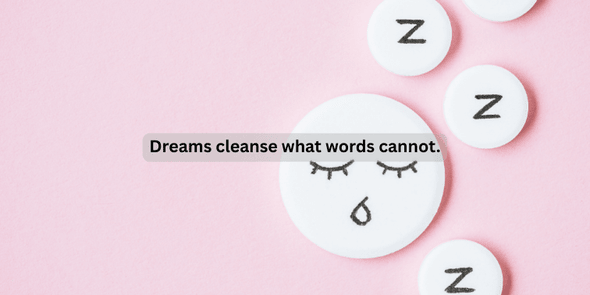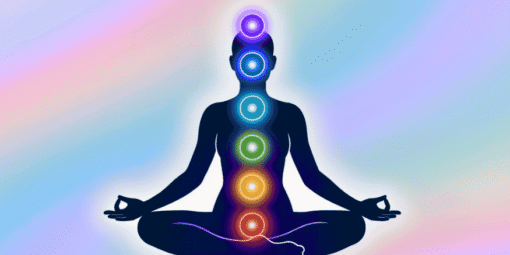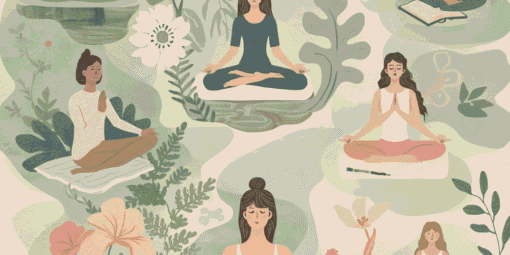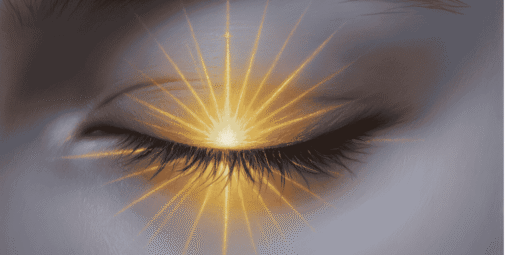Introduction
In the constant motion of modern life, restful sleep is often sacrificed in the name of productivity. Yet, it is in those quiet hours of stillness that our bodies heal, our minds reset, and our souls find peace. Sleep is not an escape—it’s a return. A return to balance, rhythm, and wholeness. It is one of the most powerful blessings we possess, yet we treat it like a luxury. To sleep deeply and wake up refreshed is a silent miracle many long for, but few protect. Restful sleep is not just a bodily function—it is a sacred ritual of renewal.
🌙 Sleep: The Body’s Hidden Healer
While we sleep, our bodies work in silence. Muscles recover, tissues repair, hormones rebalance, and the heart finds its rhythm. It is the ultimate form of self-repair—effortless and essential. Restful sleep is not laziness—it is life-saving. The more we honor our need for rest, the more we allow ourselves to function at our highest capacity. A well-rested body doesn’t just survive—it thrives.
- Sleep is the body’s most sacred restoration.
- Healing begins the moment we surrender to stillness.
- A rested body is a resilient one.
- The silence of sleep speaks volumes of health.
- Sleep is not a break—it is a blessing.
- In deep sleep, the body whispers, “I am safe.”
- Recovery starts when the world fades.
- Rest is not weakness—it’s wisdom.
- You can’t pour from a tired body.
- The night restores what the day forgets.
- Every peaceful night is a gift from your own care.
- Sleep is your body’s most loyal healer.
🧠 Sleep and the Mind: A Quiet Reset
When we sleep, the mind sifts through thoughts, settles emotions, and releases stress. Dreams carry away burdens we cannot name, and mental fog begins to lift. Restful sleep is not just for the body—it is for the soul. Without it, anxiety rises, clarity fades, and emotions spiral. But with it, we rise grounded, calm, and renewed. Mental wellness begins with good sleep.
- Sleep is the mind’s quiet therapist.
- A tired mind cannot think clearly, only loudly.
- Dreams cleanse what words cannot.
- The mind heals in the dark, not the light.
- Sleep is where emotions breathe and soften.
- Deep rest silences inner chaos.
- A calm morning begins with a peaceful night.
- Thoughts become lighter when sleep is deeper.
- Worry melts in the warmth of rest.
- Sleep sharpens what fatigue dulls.
- The night washes the soul in silence.
- Mental clarity starts with surrender.

Read more about Blessings for Mental Health Therapies Healing, Strength & Inner Peace
🌿 Creating Sacred Sleep Rituals
Restful sleep doesn’t just happen—it’s cultivated. Gentle routines, mindful disconnecting, and a peaceful environment all invite the body into its deepest rest. The way we wind down tells our system it’s safe to let go. Sleep becomes a sacred ritual when we treat it with softness and intention. A bedtime routine is not childish—it’s wise. The calmer the night, the stronger the morning.
- Rituals prepare the soul for surrender.
- A peaceful evening invites a peaceful night.
- Sleep flows from the habits that hold it.
- The body sleeps best when it feels safe.
- A warm cup, a quiet room, a soft heart—this is sacred.
- Gentle evenings lead to powerful tomorrows.
- Sleep rituals are love notes to the nervous system.
- Rest begins before the first yawn.
- Silence is the doorway to rest.
- Turn down the lights, and the mind will follow.
- A consistent routine is a lullaby for the soul.
- Sleep is sweeter when it’s welcomed with care.
☁️ Letting Go Before Sleep
We cannot sleep deeply if we carry the weight of the day into the night. Releasing worry, guilt, tension, and overstimulation is the key to true rest. Letting go is not weakness—it is preparation. When we set down the noise of the world, our bodies breathe easier, and sleep comes gently. Peace is not in the absence of problems, but in the ability to lay them aside, if only for a night.
- Let go of the day—it’s done its part.
- Surrender is the softest form of strength.
- Lay your burdens down where rest can find them.
- Tomorrow deserves a rested you.
- The mind quiets when the heart releases.
- Release is a lullaby to the nervous system.
- You don’t need to solve the night—just survive it with softness.
- Tension has no place on a pillow.
- Forgiveness is the weight you take off before bed.
- Rest isn’t earned—it’s allowed.
- You are not your problems; you are their witness.
- Sleep is trust in what tomorrow can hold.
🛡️ Protecting Sleep in a Busy World
Modern life is full of screens, schedules, and sleepless pressure. But protecting your sleep is protecting your life. Say no to late-night noise. Unplug from what drains you. Prioritize your body’s need for calm. Sleep is not optional—it is foundational. You don’t need more hours—you need better ones. And that starts with boundaries, habits, and a promise to honor your rest like the treasure it is.
- You can’t give your best if you don’t rest.
- Sleep is the anchor in your storm.
- Screens steal silence—protect it.
- A peaceful night guards your sanity.
- Protecting sleep is protecting strength.
- You deserve rest even if the world is still moving.
- Good days begin with brave nights.
- Every “no” to noise is a “yes” to peace.
- Sleep is not a reward—it’s a right.
- Even heroes sleep—so should you.
- Rest is the reset button life depends on.
- A tired life isn’t a full life.
🔚 Conclusion: Sleep is Self-Love in Disguise
Restful sleep is not a luxury—it is a silent blessing that touches every part of our being. It is the space where healing happens, clarity returns, and strength is renewed. In a world that glorifies hustle, choosing rest is an act of rebellion and of love. When you sleep well, you wake ready—not just to exist, but to rise, thrive, and feel alive. Protect your rest. Your body, your mind, and your soul will thank you for it.
❓ FAQs
1. Why is restful sleep important?
Because it allows the body to repair, the mind to reset, and emotional balance to return—impacting every part of your life.
2. How many hours of sleep do I really need?
Most adults need 7–9 hours of quality sleep each night, though it varies slightly from person to person.
3. What are signs of poor sleep quality?
Waking up tired, difficulty concentrating, irritability, and low energy levels throughout the day.
4. How can I create a good sleep routine?
Set a consistent bedtime, limit screens, create a calming environment, and practice wind-down rituals like reading or breathing exercises.
5. Does mental stress affect sleep?
Yes. Stress can delay sleep onset and reduce sleep quality, making it harder to feel rested.
6. Can changing my lifestyle improve my sleep?
Absolutely. Better diet, regular movement, hydration, and stress management all contribute to deeper, more restful sleep.







